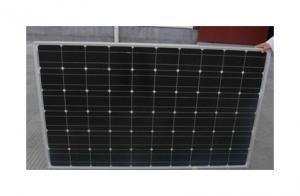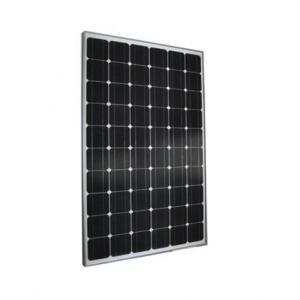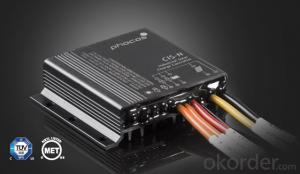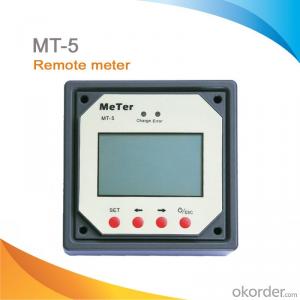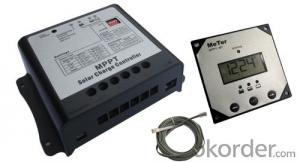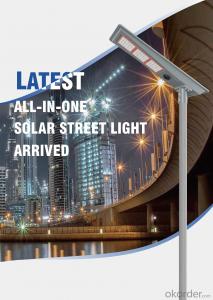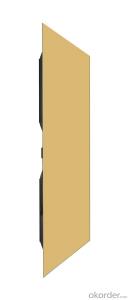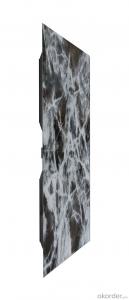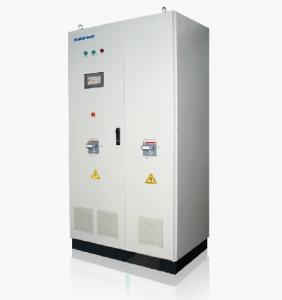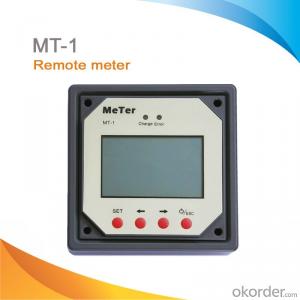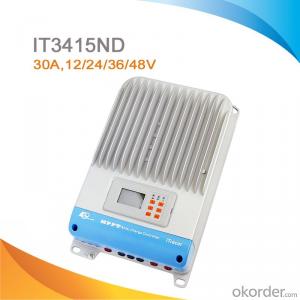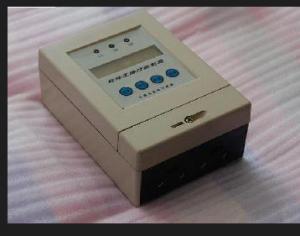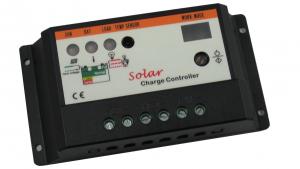Solar Modules Mono-crystalline 245W 125*125 Module
OKorder Service Pledge
OKorder Financial Service
You Might Also Like
Solar Module Descriptions:
A solar panel, or photovoltaic PV module, is a device that is composed of solar cells and which, when struck by photons of light from the sun, generates an electrical current which can then be used to power DC or AC electrical loads.
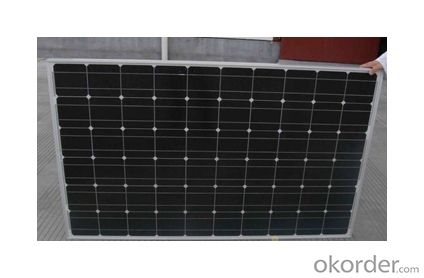
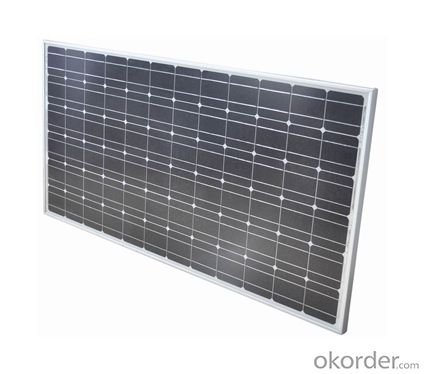
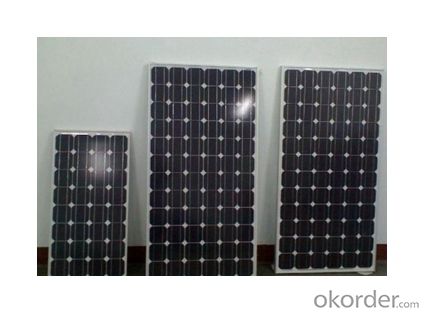
Electrical Characteristics
Max-power (W) | 245 |
Max-Power Voltage (V) | 50.5 |
Max-Power Current (A) | 4.85 |
Open-Circuit Voltage (V) | 61.1 |
Short-Circuit Current (A) | 5.35 |
Mechanical Characteristics
Cable type, Diameter and Length | 4mm2, TUV certified, 1000mm |
Type of Connector | Compatible with MC4 plug |
Arrangement of cells | 6*12 |
Cell Size | 125*125 |
Dimension | 1580*1069*45 |
Weight | 20.5Kg |
Glass, Type and Thickness | High Transmission, Low Iron, Tempered Glass 3.2mm |
Features
Guaranteed positive tolerance 0/+5w ensures power output reliability
Strong aluminum frames module can bear snow loads up to 5400Pa and wind loads up to 2400Pa.
Excellent performance under low light environments (mornings evenings and cloudy days)
12 years for product defects in materials and workmanship and 25 years for 80% of warranted minimum power.
Certifications and standards: IEC 61215.
Manufactured according to International Quality and Environment Management System (ISO9001, ISO14100).
FAQ
Q: What kind of loads can I run on PV?
With a correctly designed PV system you can power almost any electrical load. However, as the load size increases the expense also increases. Loads like hot water heaters, air conditioners, room heaters and electric stoves should be avoided. The added cost of trying to power loads like these is very cost prohibitive. If these loads have to be powered it will be a lot less expensive to change the appliance to use an alternative fuel type like propane.
Q: When do I need a charge controller and why?
The safest way to figure out if you need a charge controller is to take Battery Amp Hour Capacity and divide this by the Solar Panel max. power amp rating. If the quotient is above 200, you don't need a controller. If the number is less than 200 than you need a controller.
For example if you have a 100 amp hour battery and a 10 watt panel, you take 100 and divide it by .6 (600mA) and you get 166.6. Since this is less than 200 you need a charge controller. If you have a five-watt panel in the above example you take 100 divided by .3 (300mA) and you come up with 333.3. Since this is larger than 200 you do not need a charge controller. However you still need a blocking diode, to prevent the battery from discharging to the panel at night. So as a general rule of thumb you don't need a charge controller unless you have more than five watts of solar for every 100-amp hours of battery capacity.
Q: What is PV & how does it work?
PV stands for photovoltaic. Photo = Light and Voltaic = Electricity. A solar cell converts light to electricity.
A solar cell is made of silicon. Computer chips are made of this same material. Basically, when light strikes the surface of a solar cell some of it is absorbed into the silicon. This light energy bumps the electrons loose and causes energy to flow.
By packaging approximately 36 solar cells together a solar panel or a solar module is created. When you have more then one solar panels you create a solar array.
- Q:How does a solar controller prevent overcharging of batteries?
- A solar controller prevents overcharging of batteries by regulating the amount of voltage and current that goes into the batteries. It constantly monitors the battery's state of charge and adjusts the charging process accordingly, ensuring that the batteries receive the right amount of energy from the solar panels without exceeding their capacity.
- Q:How do you protect a solar controller from lightning strikes?
- To protect a solar controller from lightning strikes, it is important to employ a combination of preventive measures. Firstly, ensure that the solar controller is installed in a grounded location, ideally using a grounding rod that is installed deep into the ground. Additionally, it is recommended to install surge protection devices (SPDs) that are specifically designed to mitigate lightning-induced surges. These SPDs should be installed both at the solar panel array and at the electrical equipment, including the solar controller. Lastly, utilizing proper lightning arrestors and lightning rods in the vicinity of the solar system can divert lightning strikes away, providing an extra layer of protection.
- Q:Do solar controllers require regular maintenance?
- Yes, solar controllers do require regular maintenance. This typically involves checking the connections, cleaning any debris or dust, inspecting the wiring, and ensuring proper functioning of the controller. Regular maintenance helps to optimize performance and prolong the lifespan of the solar controller.
- Q:Can a solar controller be used with different types of solar panel voltage regulators?
- Yes, a solar controller can be used with different types of solar panel voltage regulators. A solar controller, also known as a charge controller, is designed to regulate the charging process of a solar panel or array. It helps to prevent overcharging of batteries and protects them from damage. Solar panel voltage regulators, on the other hand, are devices that regulate the voltage output from the solar panels to make it suitable for charging batteries or for direct use in electrical appliances. Typically, solar controllers are compatible with different types of solar panel voltage regulators. They are designed to work with a wide range of solar panel systems and can handle different voltage and current ratings. However, it is important to ensure that the solar controller is compatible with the specific voltage regulator being used. Before connecting a solar controller to a solar panel voltage regulator, it is recommended to check the specifications and compatibility requirements of both devices. This will ensure that they are compatible and can work together effectively and safely. In summary, a solar controller can be used with different types of solar panel voltage regulators, but it is important to ensure compatibility between the two devices before installation.
- Q:Can a solar controller be used with an inverter?
- Yes, a solar controller can be used with an inverter. A solar controller regulates the charging of batteries from solar panels, while an inverter converts the DC power stored in batteries into AC power for use in household appliances. Together, they form an essential part of a solar power system.
- Q:How do I determine the maximum solar panel input power for a solar controller?
- To determine the maximum solar panel input power for a solar controller, you need to refer to the specifications provided by the manufacturer. The maximum solar panel input power is typically mentioned in the product manual or on the controller itself. It is essential to ensure that the solar panel's power output does not exceed the maximum input power capacity of the solar controller to avoid any potential damage or inefficiency in the system.
- Q:What is the maximum load wattage a solar controller can handle?
- The maximum load wattage a solar controller can handle depends on the specific model and its specifications. It can range from a few hundred watts to several thousand watts, depending on the capacity and design of the controller.
- Q:What is the maximum voltage drop allowed between the solar panels and the batteries?
- The maximum voltage drop allowed between the solar panels and the batteries depends on the specific system and its components. Generally, it is recommended to keep the voltage drop as low as possible, ideally below 3% to ensure efficient power transfer and minimize energy loss. However, it is best to consult the manufacturer's specifications and guidelines for the specific solar panels and batteries being used to determine the maximum allowable voltage drop.
- Q:Can a solar controller be used with flexible solar panels?
- Yes, a solar controller can be used with flexible solar panels. The solar controller regulates the flow of electricity from the panels to the battery, and it is compatible with both rigid and flexible panels.
- Q:How does a solar controller handle temperature fluctuations?
- A solar controller handles temperature fluctuations by continuously monitoring the temperature of the solar panels. It adjusts the charging voltage and current to optimize the efficiency and performance of the solar panels according to the temperature. This helps to protect the panels from overheating in hot conditions and ensures maximum power output in colder temperatures.
1. Manufacturer Overview |
|
|---|---|
| Location | |
| Year Established | |
| Annual Output Value | |
| Main Markets | |
| Company Certifications | |
2. Manufacturer Certificates |
|
|---|---|
| a) Certification Name | |
| Range | |
| Reference | |
| Validity Period | |
3. Manufacturer Capability |
|
|---|---|
| a)Trade Capacity | |
| Nearest Port | |
| Export Percentage | |
| No.of Employees in Trade Department | |
| Language Spoken: | |
| b)Factory Information | |
| Factory Size: | |
| No. of Production Lines | |
| Contract Manufacturing | |
| Product Price Range | |
Send your message to us
Solar Modules Mono-crystalline 245W 125*125 Module
OKorder Service Pledge
OKorder Financial Service
Similar products
New products
Hot products
Related keywords
